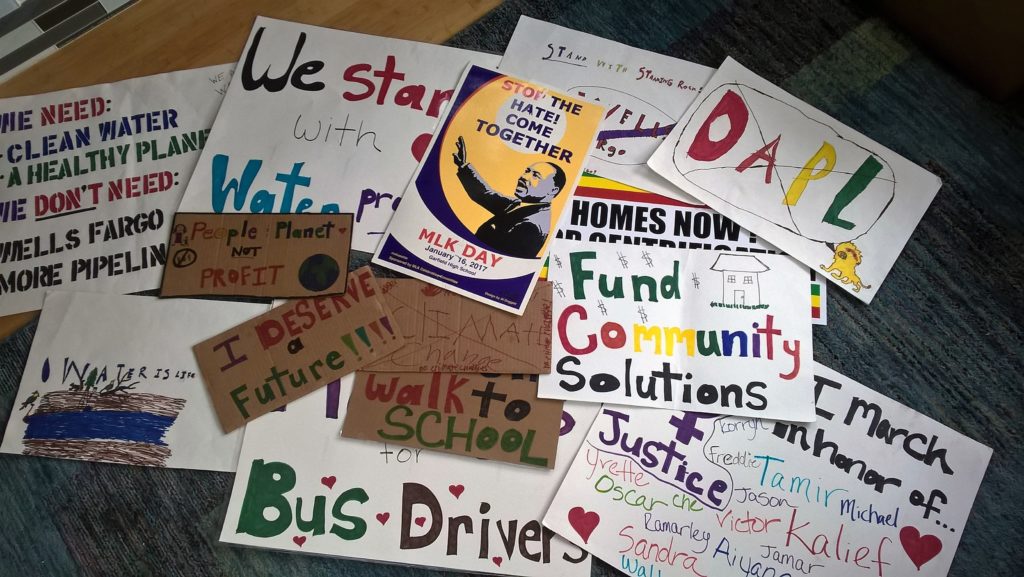“We cannot separate our children from the ills that affect everyone, however hard we try.” – Erica Jong
People often ask me how my decision to live without a car affects my children. Usually, I respond with my standard spiel about how we’re able to do all the stuff other families do (blah, blah, blah), because for the most part, it’s true — and because what usually underlies these questions is an assumption that I am shortchanging my kids, that I have sacrificed their birthright of a middle-class lifestyle in service of some extreme and unrealistic ideology.
The thing is, in a way, I have.
I look around and see friends and acquaintances driving their kids to water parks and on camping adventures and to premiere athletic competitions and to schools that are perfectly suited to their needs and temperaments. I see them participating in kid-focused organizations we would likely join if we owned a car. And sometimes, it feels like I am shortchanging them. Certainly, our life choices limit their access to opportunities many of their peers enjoy.
And then I remember that my children are not deprived in any of the ways that matter. They are loved. They are housed. They have access to fresh food, clean water, health care, and unlimited books (thank you, Seattle Public Library). They participate in sports and study the arts and play outside safely in their own neighborhood. And they see their beloved extended family regularly, if not as often as they (or I) would like.
Yes, their lives are constrained in some ways, but all kids’ lives are constrained by their parents’ values and circumstances. (Just ask my dad, a talented athlete who was prohibited from participating in most school sports because the games conflicted with his family’s religious observances.) And far more important than the minor, parentally imposed constraints they currently deal with are the very real threats to their future — climate change, extreme inequality, political instability — which are primarily the result of the very lifestyle they have been deprived of.
At some point, we have to acknowledge that what our culture values and prioritizes isn’t actually good for our children — or, for that matter, anyone else who’s trying to survive on this planet. We can continue to participate, or we can choose a different path, however impractical or unrealistic.
Several weeks ago, I came across this beautiful essay by Nicole Bradford, a mother of three whose husband is facing years in prison for participating in direct action efforts to stop fossil fuel extraction. Nicole’s insights are a gift, because they remind us of what we truly owe our — and everyone’s — children.
The accelerating instability of our earth is clarifying. And the act of rising to the enormity of what’s in front of us magnifies the commitment I made to them, when painfully, in love and toil, I brought them to this world.
I know that to use their youth as an excuse to not engage in this struggle would be to betray their existence. Together we are fighting for something all children on earth should be entitled to: a livable planet. And for Ben and me, the work of it becomes its own love story–to each other, and to our children.
Certainly, my family’s “sacrifice” (such as it is) cannot be compared to the Bradfords’ courageous stand. It’s difficult to even argue that our transportation choices are making any kind of difference — in the health of our planet or in our culture. But while the effectiveness of our resistance might be up for debate, the need for it is not.
Working for a healthy, peaceful, just planet does not conflict with our role as parents. On the contrary, it is the most important part of our job. We don’t owe our children fancy camps, or a perfectly curated school experience, or a spot on the best premiere soccer team. We owe them a future. We owe them a life.

